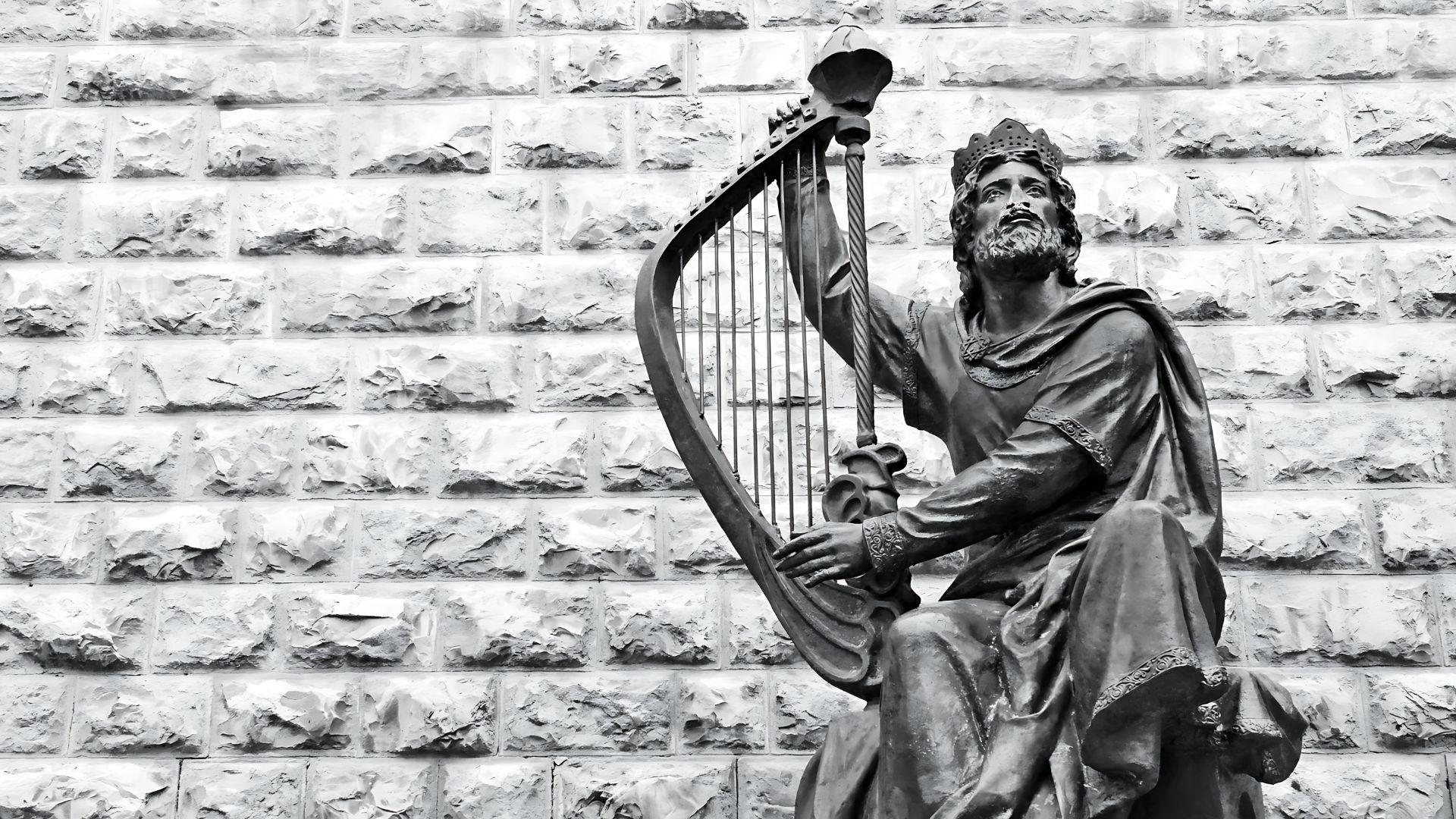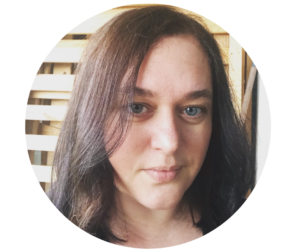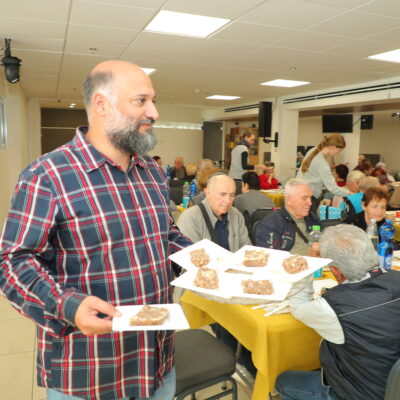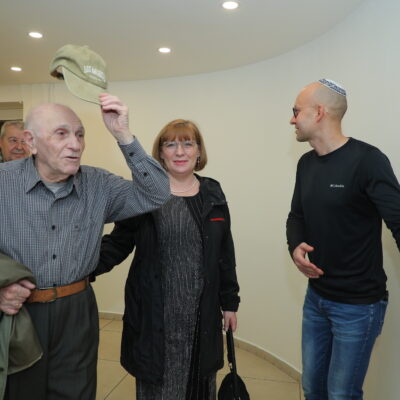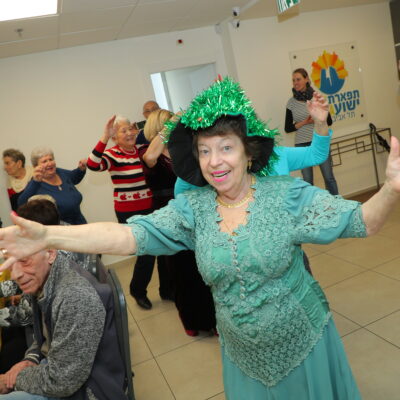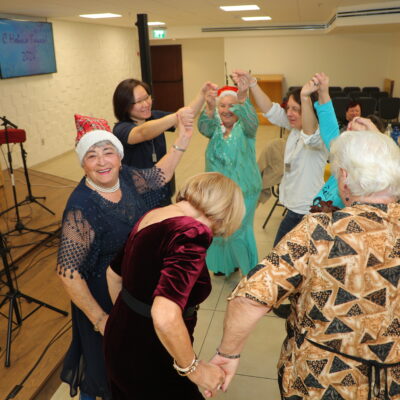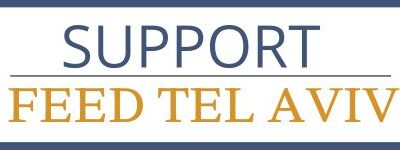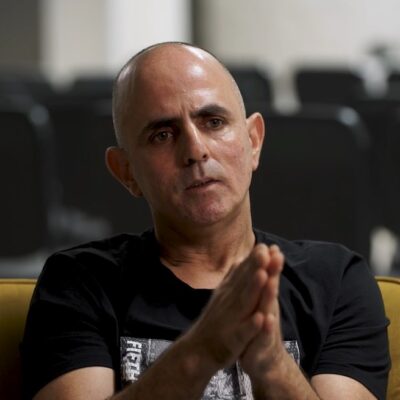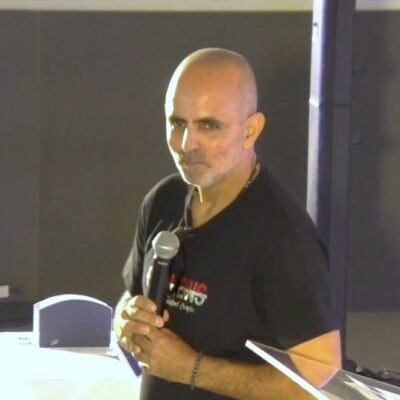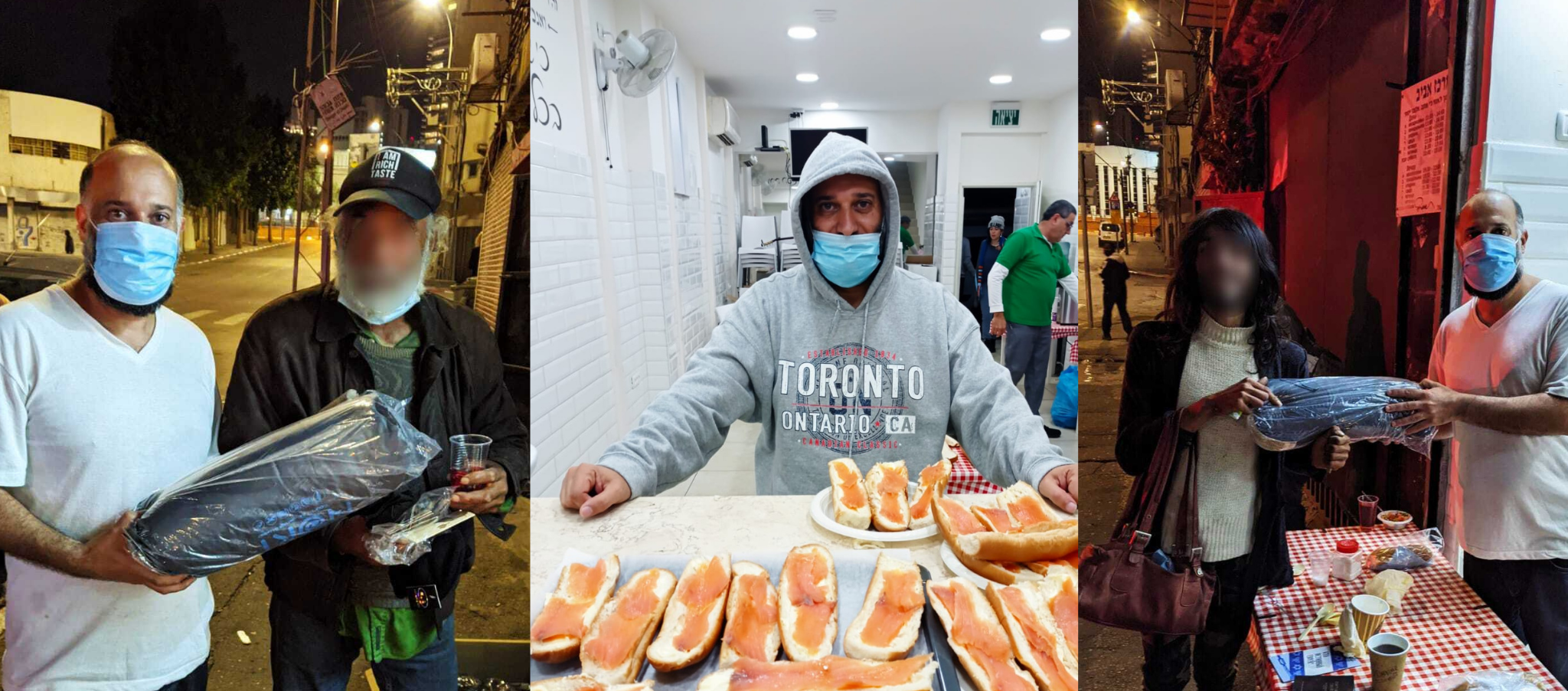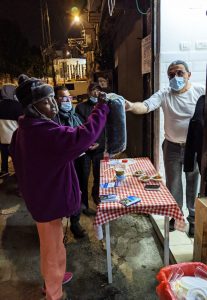On November 11, 2024 while on a bus ride from Ramat Aviv to the centre of Tel Aviv, I received Yeshua HaMashiach, Jesus as my Lord and Saviour, into my heart and into my life. Here is my testimony of how the Lord called me back into His flock.
My name is Geri Berman, and I was born in Singapore, baptised as a Roman Catholic when I was an infant. My family practised Catholicism with a salad mix of Taoism, Buddhism, ancestral worship and the occult. This was considered the norm amongst many Singaporeans who considered themselves Catholics. At that time, I knew of Jesus, but I didn’t know Him intimately as my Saviour. Most prayers were said to Mother Mary as the main intercessor to God. The Catechism was the authority, not the written word of the Old or New Testament. There was a lot of tolerance to incorporate superstitions, practices and beliefs from religions inherited from my Chinese ancestry. The Catholic church does not warn against idolatry, and this is evident in their version of the 10 commandments which eliminates the second commandment of the Hebrew bible which speaks against idolatry.
A PROFANE MIXTURE – Christianity, Buddhism & Witchcraft
How this laxity of the church resonated in our home is that I grew up with several altars set up in our house. There would be a crucifix hung on the wall next to a statue of Mother Mary which was next to pictures of dead loved ones with food offerings. At Chinese New Year, our doors would have festive pictures of the Chinese God of Prosperity and the Chinese Zodiac. We quoted Taoist sayings more than bible verses. We often consulted fortune tellers, and we considered it our duty to burn incense and paper money for dead relatives to spend in hell whenever the Hungry Ghost Festival came along. My grandmother didn’t allow me to go swimming because she was convinced there would be water ghosts lurking in the waters to drown me. Children were warned against playing near banana trees because evil spirits would be residing within them.
There was little discernment taught in the church. My mother was a single-mother, and raising a child was challenging for her financially and emotionally. Instead of turning to God for help and guidance, she consulted a female neighbour who was a Malay “bomoh” (or shaman) to cast spells in order to secure a good job and to get a romantic partner. Occasionally, she would also visit a Chinese male shaman for protection against evil spirits. She brought me along to these spiritual visits, and I would always feel ill-at-ease at these sessions, which at that time, I didn’t recognise as witchcraft. As you can see, my family opened all sorts of doors to all kinds of spiritual entities. The mixture in religious worship was not discouraged, in fact, it was desired. In case one god was not effective or didn’t respond quick enough, then we could easily call upon another for help and intercession. There was a naivete that led to the thinking that all gods are benevolent, and we surrendered to whichever entity that would bring us more immediate results.

The culture that I grew up in was steeped in superstition and fear of the spiritual realm, and the Catholic Church didn’t seem to have either power or authority over these foreign spirits or gods. It too was based on fear as an organizing principle for control, and it didn’t offer a definitive path to salvation: no matter how many devotional works were performed or how many prayers said, how many sins confessed, there was only the promise of continued suffering in purgatory after death.
In order to release dead relatives from purgatory, we had to pay indulgences to the church because the average person is not going to be canonized as a saint, and only saints are guaranteed a place in heaven. In addition, there are a whole slew of patron saints that people can turn to for different problems in their lives. Each saint was empowered by the church for specific patronages. So, if I had a stomach-ache, I would pray to this saint. And if I lost my keys, I would pray to that saint. This system introduced the thinking that there isn’t a sovereign God that we should turn to but rather a host of patron saints or co-gods sharing divine power. This, in fact, is not so different to the host of gods that exist in Buddhism or Hinduism.
TERRIFYING ATTACKS
One troubling and alarming event happened when I was a year old which amplified my fear of the impotence of the church. I was too young to remember any details of this event, but it was related to me by my family when I was old enough to understand. At one year old, I was possessed by a demon for an extended period of time. Whenever the possession would occur, I would speak in a male tongue in an Indian language, and I would become so strong that 5 grown men would not be able to hold me down. My family sought deliverance for me from the Catholic church, but the church bureaucracy delayed their arrival to help me. When they finally came, the priests were not successful in exorcising the demon. In the end, my family had to turn to a Chinese medium in order to cast this demon out of me.
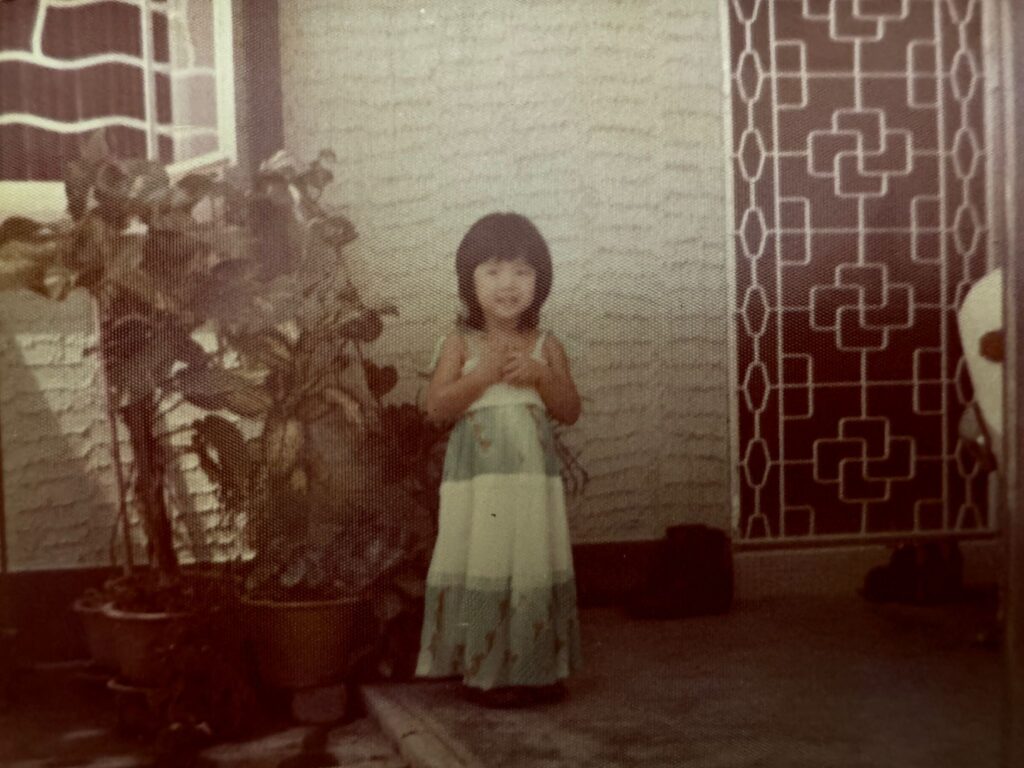
When the family told me about this when I was old enough to understand, I wondered why they continued to go to the Catholic Church religiously since it proved to be ineffective in a spiritual war. As I said, I don’t remember at all this period of time when I suffered demonic possession, but I do remember that up till I was in my twenties, I often suffered from sleep paralysis. When this happened, I would be woken up from sudden panic and intense fear, and I would be made immovable with what felt like a huge foreign body bearing down on me, preventing me from breathing. Instinctively I would say The Lord’s Prayer in my head which would release me from the oppression:
“Our Father who art in Heaven,
Hallowed be Thy name,
Thy Kingdom come,
Thy will be done”
Matthew 6:9-10
Usually when I recited that in my head, the oppression would leave me. At other times, when I was in too much of a panic, then three words would suffice to expel this nefarious presence: “Father, Jesus, Help!”
Through these experiences, I understood that there was perhaps some kind of higher power at work in the Catholic church. At the same time, I didn’t understand why my membership in the Catholic church didn’t exempt me from these terrible experiences. Perhaps there was something truly rotten inside me, and this is the punishment I deserved, the purgatory on earth that I had to endure even before death arrived. So, I had better pray more and do more good things to earn my way out of eternal damnation.
At that time, I didn’t have the vocabulary to vocalise what bothered me about the church, but I stuck to it mainly because I simply followed what my family and friends did. The church after all was my entire social circle. Now as an adult I can say that it is a church based on salvation through works and not by faith through the grace of God. I write this not to criticise anyone in the Catholic faith but to give an honest testimony of my experience, and I definitely don’t think that every Catholic experienced what I experienced. However, while I was a Catholic, there was always the shadow of guilt and shame that followed me no matter how hard I tried to “be good” as dictated by church standards.
My childhood was shaped by this mindset as I received my first ten years of education in an all-girls Catholic missionary school. Since I was taught by a school led by a nun that I respected, there was a time that I even professed that I would grow up to be a “bride of Christ”. I didn’t know exactly what that meant but I desired living a sanctified life the way the nuns did. There was definitely a longing inside of me for a relationship with God, but I didn’t know how to achieve that outside of the religious construct provided by the church. I did what I was taught to do: I religiously went to Sunday school and church services every Sunday. I prayed the rosary diligently several times a week and was confirmed at age 12 into the Catholic faith.
SHOCKED BY ABUSE AND COVERUP
Then in my twenties, I was horrified by reports of widespread pedophilia performed by priests of the Catholic Church. What disappointed me the most was that instead of being repentant, the Church was more concerned with covering up the transgressions of the guilty within its ranks. While we were told as Catholic parishioners to confess our sins to priests, they themselves as church leaders seemed to be exempt from the laws of their own doctrine. As a young adult, I became disillusioned by the sheer hypocrisy of the Church and renounced it, and I stopped practicing as a Catholic. When I left the church, I also further distanced myself from Jesus. I thought that this was liberation from an oppressive, corrupt religion and the evil programming of its institution. However, little did I know then that despite cutting myself off from an “unclean spirit”, that “it goes and brings with it seven other spirits more evil than itself and they enter and dwell there, and the last state of that person is worse than the first.” (Matt. 12:45)

In my ignorance, I turned from religious worship in the Catholic Church to secularism, not having the discernment that secularism was just another variation of religious worship. Being secular is in itself a portal that opens up the doorway to a plethora of idol-worship modalities. The mantra that I proudly held onto for the next 30 years is that “I am spiritual, not religious”. It was trendy and attractive to be in “Christ consciousness”, while denying that Christ is fully God and reducing Him to just another holy man or prophet. I believed that He was one among many other gods and goddesses. I also embraced the idea that there’s a benevolent universe, or mother earth, that granted abundance to me if I remained a “good person”. My morality would be defined by my own rules and on my own terms. I was basically crafting my own secular god that was fueled mainly by the god of self-worship because I reasoned that “each person should be entitled to their own definition of truth.”
During this season of my life, the deception and lies intensified. I was open to all kinds of spiritual practices that have ties to the demonic and the occult. Of course, I didn’t see them as demonic but as self-help, self-love, or self-improvement techniques. There were many new-age practices and ideologies that I was deceived into embracing – like yoga, Hindu and Buddhist chanting, automatic writing led by “The Way of the Artist”, manifesting, Zen meditation, numerology, fortune-telling, astrology, necromancy, energy work, tarot-reading, worshipping the divine feminine, and studying with a spiritual medium. This is just a truncated list of what I infused into my “secular” life. I picked and chose from a whole buffet of divinations and forbidden fruit. I thought that I was “spiritually free”, but, in fact, I was enslaved and chained to sin and to death, making contracts with dark entities that I didn’t know or understand. I considered myself more “evolved” in my spiritual practices compared to my mother when, in reality, I had simply inherited from her the idolatry of foreign gods and the worship of self.
For years as a devout secularist, I was stuck in my own version of Egypt, wandering without purpose, lost, and bound in darkness. I was so deeply captivated in the dark tunnel of deception that I was convinced I was living my best and brightest life. I was busy in the pursuit of happiness to run away from the deep despair I felt within. The verses in Isaiah 5:20-21 accurately describe the woe that I couldn’t escape from:
“Woe unto them that call evil good, and good evil; that put darkness for light, and light for darkness; that put bitter for sweet, and sweet for bitter!
Woe unto them that are wise in their own eyes, and prudent in their own sight!”
A SERIES OF SUPERNATURAL ENCOUNTERS
By the grace of God, beginning in the last week of June 2024, I started to experience a series of supernatural events that was God’s way of delivering me from this woe and ushering me back into his kingdom.
The first event that happened in June 2024 was when I was going through a very difficult time related to work. There was a growing amount of pressure placed on my shoulders, and I didn’t know how to solve it alone. This work crisis also brought up many personal issues that were lurking beneath the surface. My false sense of self crumbled under this crisis. Then one night, when the mounting pressure was reaching a climax, I found myself desperate and anxious with zero solutions. I went to bed defeated that night, already exhausted by stress and long hours at work, and tried to get the sleep required to get through the following day. However, I was suddenly gripped with painful leg cramps in both calves that lasted more than two hours. This never happened to me before, and it made me even more anxious. When the pain finally abated, I spiraled into an abyss of nerves and agitation. The more I wanted to sleep, the more I couldn’t. In a state of desperation, I called out to my “spirit guides” for help. Now please understand that this was something that I had not done before. In fact, the last time I remember calling out for help in this way was in my teens during sleep paralysis encounters. This time, since I assumed I had no Father in heaven and no Jesus to call out to, I called out to my “spirit guides”.

What responded to my cry for help took me completely by surprise. The best way for me to describe it was a visitation of “beings” or “angels”. Their presence immediately put me at ease and lifted the weight off my chest. For some reason, it triggered an overwhelming feeling of peace and relief, and I couldn’t stop the rush of overflowing tears. They had a calming presence and came with a list of specific solutions for what to do at work. I was partly in shock because they seemed to know in detail what I was dealing with at work. In addition, they knew that what I was most concerned about was that there wouldn’t be enough time to finish what had been planned for the next day’s timeframe. However, the angels reassured me that I wouldn’t go overtime at all but would instead finish 2 hours ahead of schedule. Finally, they told me that it was useless to try to sleep a wink, but I shouldn’t worry about it because I would have double the energy to accomplish all that was required of me with ease and all would proceed smoothly. Everything that they proclaimed came to pass, and I passed the next day with awe and wonder at how everything they prophesied came true.
It was beyond a doubt that something supernatural had happened, and yet the solutions that the angels brought were anchored in the material world. And it seemed that I was experiencing 2 dimensions at the same time. The next day, when I sat in silence to process all that had happened, the second supernatural event occurred. A voice sounded in my head proclaiming 2 things:
- “I am the way, the truth and the life; nothing comes to the Father except through me.” (John 14:6)
- Go read the Bible beginning with Genesis
THE DELIMMA
This was when I went through a period of confusion because I was presented with a series of what I thought were mixed signals. I had called out for my “spirit guides”, but now there’s a quote from Jesus. So, what and who exactly was the presence that came to my aid? Could it be that Jesus sent angels to help me in place of what I expected to be my “spirit guides”? And what is the connection of Jesus to the Old Testament? Didn’t He appear only in the New Testament? Was I going crazy? Perhaps I was just imagining it all and what I was experiencing was not really what was happening.
Now the voice that spoke was insistent and kept repeating the above 2 sentences to me in the following days. The more I tried to ignore it, the louder it became. I resisted the instruction to go read the Bible simply because of my pride. What was the point? I was sure it was going to be a boring endeavour, and besides, I presumed that I knew all there is to know in the Bible from my previous Catholic programming. But because the voice didn’t leave me alone, I negotiated: instead of reading the Bible, I could just watch The Chosen series on YouTube and that would be enough! So, I began watching the series.
It was entertaining, but then questions started to bubble up within me. I noticed that there were times when I was aware of being emotionally manipulated and what was portrayed on the screen didn’t seem to line up with what I remembered the Bible stories to be. This was surely an interpretation of the creative team of The Chosen, and they took some artistic license to present the stories from the New Testament. I felt a growing annoyance and dissatisfaction at my inability to decipher what was actually written in the Bible and what was interpretation from the drama series. This irritation at my lack of knowledge planted a growing desire within me to crack open the pages of the Bible.
In addition, when I began watching The Chosen videos, I was immediately plugged into the YouTube algorithm that kept sending me recommendations to watch Jews for Jesus videos. At that time, this was fascinating to me, because I’ve never known anyone personally who is a Jew and believed in Jesus. I studied at Brandeis University, a Jewish university in the United States, and I’ve lived in Israel for more than 17 years. How is it that I’ve never met a Jew who believes in Jesus? That led me to binge-watching video testimonies of Jews that have found faith in Jesus. From other videos, I saw Jeff and Elisha (from Jews for Jesus) standing in the familiar streets of Tel Aviv and Jerusalem, evangelising and handing out Bibles.

The most embarrassing thing to admit was that while I was in the Catholic church, I was complicit in suppressing the Jewishness of Jesus. Hearing Jeff and Elisha talk about Jesus, I was discovering for the first time who Jesus actually is and that He came into the world to be the Messiah not just for the Jews, but for all nations. Watching the videos was a surreal experience because it felt as though I was a 1st-century gentile living in the Holy Land, being preached to by 1st-century Jews who were the first believers in Jesus–just like how it was portrayed in The Chosen – but a similar thing was happening 2000 years later! This was when the desire to read the Bible started to take full bloom within me, and as instructed, I finally surrendered and arrived at the first page of Genesis.
THE LIVING WORD OF GOD
Once I started, I couldn’t stop. It felt like my eyes were opened to new meanings, symbols and analogies that I’ve never seen before. And I started to see Jesus infused into almost every page of the Old Testament. I expected the experience of reading the Bible to be completely boring. On the contrary, it was riveting, and I couldn’t put it down. I drank it all in like someone finding an oasis in the middle of a desert. And it still feels this way whenever I read the Bible. It was clear to me then that a supernatural force was again at work from within the pages, and it reached out and gripped me by the heart.
However, because of my “stiff-necked” resistance, a part of me couldn’t reconcile in my head what was happening, and I made another negotiation. This time I said out loud, “If the God in these pages is real, and if Jesus is real, then a Jesus-believer in Israel, would approach me without any effort on my part and hand me a Bible written in Hebrew with the Old and New Testament in it.” When I pronounced these terms, I was picturing someone like Jeff or Elisha handing out a Bible to me on the streets of Tel Aviv. Then I sat back and waited. I continued to Bible-binge, but I felt the ball was now in God’s court. So I waited. A few uneventful weeks passed by.
A DIVINE APPOINTMENT
Then on Oct 1, 2024 when Iran sent its second barrage of missiles to Israel, I posted a picture of cookies on my Instagram stories, explaining that I was stress-baking. One of my followers, Lavinia, responded soon after to that post, and sent me good wishes. She said she empathised with how I felt because she was sheltering with friends in Jerusalem. This was an out-of-the-blue message because at this time I didn’t know Lavinia personally at all. Now, I do not freely communicate with my followers on DMs, but I saw from our chat history that a year prior, she had asked for recommendations for places to fabric-shop in Singapore. Back then we happened to be in Singapore at the same time, and I complied by sending her my recommendations.
This lowered my guard, and I responded warmly to her, and then she sent me a picture of the group of women she was sheltering with. One of the faces in the picture immediately caught my eye. I recognised her as one of the members of FIRM Israel which is a Gospel related ministry. When I asked Lavinia if that was her, she responded in the negative, but added “But all Jesus-believers in Jerusalem know each other.” This was when I perked up. Here was a Jesus-believer in Israel, approaching me without any effort on my part, and declaring herself as a Jesus-believer. This was at least a partial fulfilment of the terms I requested from God, so I asked for Lavina to speak to me on the phone. I said to her, “You may think I’m crazy, but I have a feeling you’re someone that God might have sent to me.” I was afraid she would think I was a mad woman or some strange stalker, but she graciously agreed to come meet me the next time she was going to be in Tel Aviv. A few days later, I found myself sitting across from her in a cafe in the centre of Tel Aviv.
As I began explaining to her the supernatural events that had been happening to me, in the back of my mind I thought that God was only fulfilling half of what I had asked for. He brought to me a Jesus-believer, but where was the Bible that I asked for? As soon as this thought flashed in my mind, Lavinia reached into her bag and handed me a Bible as a gift. When I flipped through the pages, my jaw dropped when I saw that it was written in Hebrew with the Old and New Testaments in it. I felt a burning in my gut that welled up within me. I knew with absolute certainty that with this grand gesture God was saying to me that He is real and Jesus is real! God had answered my request and now the ball was back in my court. And now, what was I going to I choose to do?
WHAT DO I DO?
At that moment, I knew my life was never going to be the same again. I immediately asked for guidance from Lavinia. Where do I go from here? How do I move forward? Where is there a group of fellow believers near me that I can get encouragement and support from? Before we ended our meeting together, Lavinia graciously prayed for me, and I felt the power of her words spoken in the Holy Spirit. That day I started to pray to God. Lavinia responded to my questions the next day with a few links and contacts, and I chose to take the next step forward by contacting Annie from Jews For Jesus.
Annie was very patient and encouraging with me in our phone conversations, and she helped me understand how to begin walking the path of righteousness with the Lord. I realised that the Holy Spirit has been guiding me towards a deeper understanding of the word of God. My eyes were opened to see how I had turned my back towards God, and He was calling me to repent and return to Him. I am a sinner, and my salvation was secured through the blood of Yeshua HaMashiach when He willingly died on the cross for us.
Annie then referred me to Deborah at Tiferet Yeshua, and she warmly invited me to worship and service held there. Before I attended my first worship and service, I repented for my false worship of a spiritual medium and renounced my studies with this entity that I’ve consulted regularly for more than 17 years. I left this group on a Wednesday and entered the house of God on that same Friday. When I attended Tiferet Yeshua, it was a kind of homecoming. I was surprised and encouraged to be welcomed into a congregation that was made up of believers coming from different backgrounds, all united in the body of Christ, and Paul’s words came to mind: “Here there is not Greek and Jew, circumcised and uncircumcised, barbarian, Scythian, slave, free; but Christ is all, and in all.” (Col. 3:11)
After that, Annie asked me if I’ve received Jesus into my heart. That was the first time someone asked me a question like this, and my honest reply was that I wasn’t a hundred percent sure, and that there were still doubts and fears that I held. Annie reassured me that God is patient and when the moment happens, I would know. We went ahead and made an appointment in a week’s time, to have our first physical meeting in the Jews For Jesus office. For a few weeks, Annie had been guiding me through phone conversations and we hadn’t met face to face.
A PERSONAL MESSAGE FROM GOD
When the appointment day rolled around on Nov 11, 2024, I anticipated Annie would ask me again if I had received Jesus into my heart, and I knew that I would have to say “no” because nothing seemed to have altered much since the last time I spoke with her. That week leading up to the meeting, I was reading the book of Isaiah and had completed it the morning of our meeting. I noticed that the prophet was repeatedly chastising kings and rulers of nations that failed to protect the fatherless and the widows. That was interesting to me because I had grown up without a father, and I was also widowed by my first husband when he died suddenly because of a stroke. So technically speaking, these passages were referring to how kings and rulers have failed people like me. Then for some unknown reason, I jumped to Psalm 68 and finished reading it just before getting on the bus from home in Ramat Aviv to meet Annie in the centre of Tel Aviv.
I assumed that this was just going to be another ordinary bus ride into town, but as soon as I sat down on a bus seat, I heard these words resonate loudly from Psalm 68:5-6.
“Father of the fatherless and a judge of the widows,
Is God in his holy habitation.
God setteth the solitary in families;
He bringeth out those which are bound with chains:
But the rebellious dwell in a dry land.”
A flush of fire rushed from my head to my toes, and I was overcome with an onslaught of simultaneous grief and joy. At that moment, as I was crying unstoppable tears, I saw in the depths of my soul that all God wants is to have an intimate relationship with me as my Heavenly Father. In response, I’ve spent 50 years running away from him, insisting on being separated from him, dwelling in a dry land. Yeshua, as our Messiah, is the Son that came to reveal the Father to us, and that is how he “is the way, the truth and the life; and no one comes to the Father except through Him.” In addition, I understood why God repeatedly refers to Himself as the God of Abraham, the God of Isaac, the God of Jacob and the God of Israel because He is underlining the value of His fatherhood and our sonship and the inheritance bestowed upon us because we are children of God. He wants to build and cultivate the relationship between Himself as Father and us, as his children. Our greatest inheritance is Him, as our all-loving provider, our all-giving Father. Jesus, His son came to tell us that:
“Everyone who sins is a slave to sin. Now a slave has no permanent place in the family, but a son belongs to it forever.”
John 8:34
This is a call for us to come out of slavery to the god of this world into sonship with the Heavenly Father, our Lord and God.
All my life, I had carried the pain and bitterness of being abandoned by my own human father, and, in an instant this megaton of emotional baggage fell away from my shoulders. I forgave my own father completely at that moment. Then I saw a flash of events that have happened in my life. I realised that even when I was in the darkest season of rebellion against my Heavenly Father, He has always been there. He has always been ready to forgive, and, in the fullness of His grace, He extracted me countless times from terrible situations of danger, despair or desperation and still continues to do so.

Now, once again, He was extending His hand towards me, inviting me to return to His Kingdom. This time, I reached out my hand and held on tight to my Good Shepherd that left the 99 to pursue the one lost sheep. My eyes were opened to the trail of breadcrumbs that he left for me to bring me home to him in order to receive the bread of life that lives and reigns through Jesus:
“Come to me, all you who are weary and burdened, and I will give you rest.”
Matthew 11:28
This is how patient and gentle He is. He is full of grace and is grace itself. He met me right where I was, imperfect and lost. In my ignorance and blindness, when I called out for help from my “spirit guides”, He cracked open the darkness and guided me back into His light. He walked me back to His Kingdom in faithfulness and with forgiveness. He is truly God of gods, Lord of lords, King of kings! I also understood that this was a spiritual invitation that was different from any kind of religiosity that I’ve experienced in the past: He was inviting me to trust in Him, to have a relationship and a sacred covenant with Him. In response, I accepted, and invited Him to be my “shield and helper, and (my) glorious sword” (Deut. 33:29), to be my Lord and God.
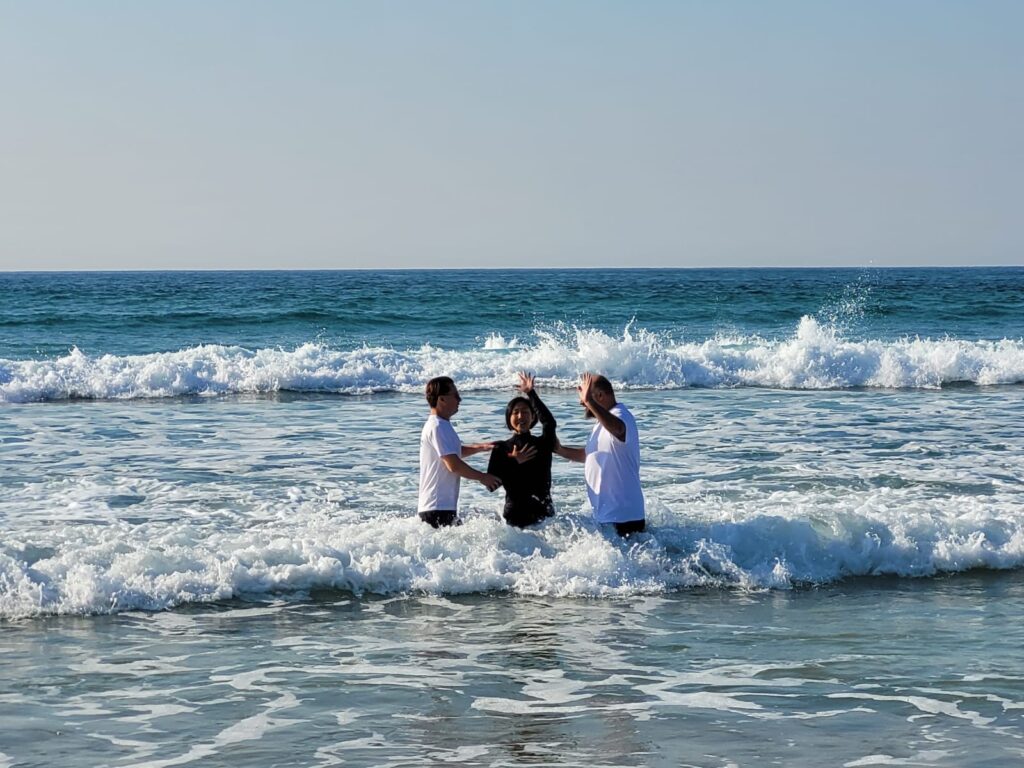
So, this was my bus ride of salvation that transported me back into the arms of Abba, my Heavenly Father. He delivered me from the enemy’s deception and lies and led me to His truth. I receive and accept Yeshua as my Saviour, my Lord and living God fully into my heart, and offer up my life to serve the Father’s will and follow His commands. Ever since that day, He has led through the Holy Spirit to turn away from a life bound to sin. He has gently and patiently guided me to true freedom through forgiveness and repentance. On December 3, 2024, I was baptised by Pastor Moti and Kosta of Tiferet Yeshua in the waters of Tal Baruch beach. Yeshua is my rock, my redemption, my shield, my refuge, my shelter and my glorious sword. Praise God for giving me this opportunity to become a witness to Him, to proclaim his glory and magnify his eternal goodness!

